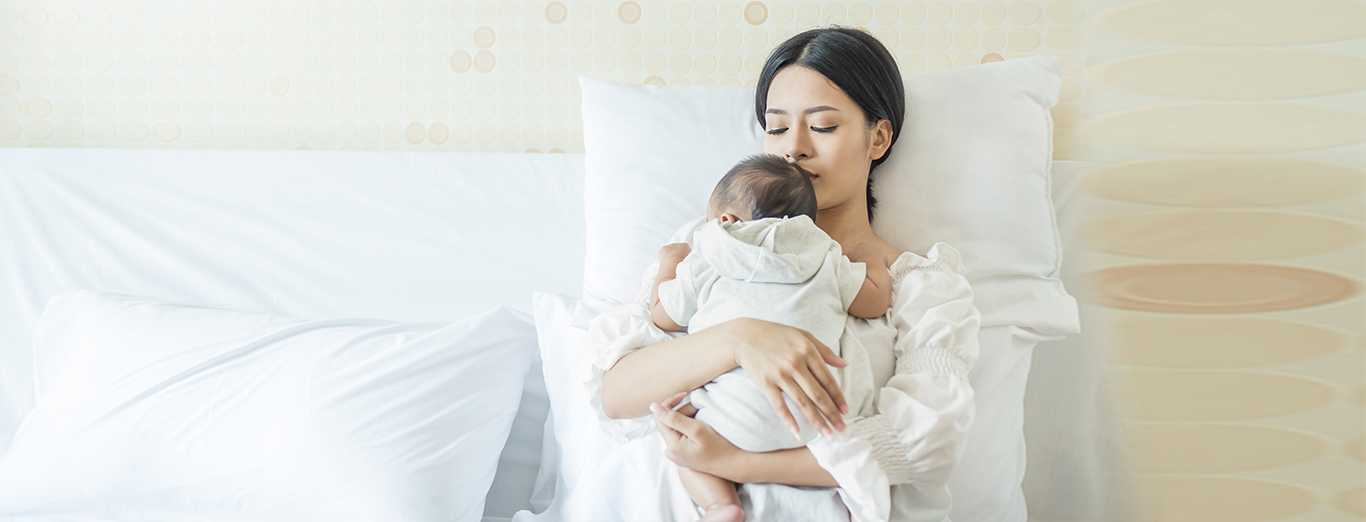
common sleep patterns observed in new born babies
sleep patterns in new born
Newborns typically have irregular eating and sleeping patterns. They frequently wake up during the night, which is absolutely normal.
The normal baby spends most of the day and night asleep, only waking up to feed once every few hours. For new parents, knowing how long and how frequently a newborn will sleep can be challenging. Sadly, there is no proper newborn sleep schedule at first, and many babies mistake the days for the nights. They believe that they should sleep during the day and be awake late at night.
newborn sleep rhythms
Infants are unable to distinguish between day and night. They don’t have regular sleep and wake cycles. You can see changes in newborn sleep patterns by week.
In the middle of the night, newborns commonly wake up to be fed or changed.
They may start to understand the sequence of day and night at roughly 3 months of age.
By introducing your baby to light and engaging with them calmly throughout the day, you can teach them to sleep longer at night. Additionally, you can create a peaceful, dim environment at night-time.
common newborn sleep patterns
Active sleep and peaceful sleep are the two types of sleep that newborns experience.
- Active sleep- Newborns make a lot of noises and move around during active sleep. If they are in active sleep, it is simple to wake them.
- Quiet sleep- Newborns are still while they are sleeping peacefully. They breathe deeply and regularly. Quiet sleep reduces the likelihood of their waking up.
Newborns experience cycles of sleep when they are asleep. Each newborn’s sleeping pattern lasts for around 40 minutes and includes both active sleep and peaceful sleep.
Newborns briefly awaken at the end of each cycle. They may sob or grizzle as they awake. You may have to assist your baby in falling back asleep if they wake up towards the end of a sleeping pattern.
how newborn sleeps?
To develop and grow properly, babies need to have proper sleep. This normally occurs between 14 and 17 hours out of every 24 for babies. But there is a wide range in newborn sleep patterns.
In general, newborn sleep for about 2 to 3 hours at one go. One nap for a newborn can be of 4 hours too. Because their stomachs are so small, newborns often wake up to eat. After eating, your baby may fall asleep again right away or they may be awake long enough to play for a short while.
Some babies become sleepy after 60–90 minutes of being awake. Some babies are more alert and attentive.
Both throughout the day and night, newborn sleeps. They are unaware that people go to bed at night. They still have immature brain areas that regulate the cycles of day and night.
how to make proper pattern for sleep in newborn babies
A sleeping baby has the most tranquil appearance. However, even while babies are snuggled up in bed, their brains are busy working on maturational tasks such as memory and learning.
Everyone needs sleep, but children, who are growing both cognitively and physically, need it more than anyone else. The peak phase of growth hormone production in children occurs just as the sleep cycle newborn begins.
Therefore, sleep is crucial, especially for children. Unfortunately, merely understanding that your children need to sleep well doesn’t guarantee that they will.
Putting Your Infant to Sleep
Babies might not be able to create their own sleeping and waking schedules, particularly when it comes to falling asleep. You can encourage your baby to fall asleep independently on their own, train them to do so, and set up healthy sleep schedules that are both safe and relaxing for them.
Set a sleep routine
Establish a sleep routine. It might be as easy as singing a melody and putting on the white noise machine for a newborn baby. As soon as everyone is aware of what will happen, repeat the actions in order: “Put on pyjamas, read books, cuddle, lights out.” Kids are less likely to request something that isn’t included in the plan when a schedule has been established since they are more likely to embrace it.
Getting Better Through Practice
Additionally, it’s critical to maintain appropriate “sleep hygiene.” Rest in the bed and the bedroom. Before going to bed, ensure all toys, temptations, and distractions are put away or, if feasible, stored in a different part of the house. It is simpler to drift off to sleep in the bedroom if you make a positive link of sleep with the bed. It gets simpler the more you practice letting go and dozing off in a particular location in your mind.
portea can help look after new born
We at Portea are aware that caring for a newborn baby requires special attention and the appropriate experience, and that this may be highly managed accordingly with the help of a certified person. Portea offers skilled caretakers for new babies as well as complete in-home newborn baby and mother care.
The nurses at Portea are skilled in caring for infants and can provide the direction and counsel which a new mum really deserves. Our Portea nurses can advise and support you as you navigate motherhood with a surprising comfort, answering questions about breastfeeding frequency, the newborn’s sleep patterns, appropriate clothes, newborn care, as well as the mother’s nutrition and comfort.
Doctor Consultation
Nursing
Physiotherapy
Trained Attendant
Elder Care
Mother & Baby Care
Lab Tests
Medical Equipment
Speciality Pharma
Critical Care






